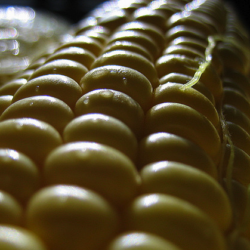A version of this article originally appeared in the World Business Academy’s monthly publication Currents in Commerce. Join our mailing list to receive Currents in your inbox.
U.S. and EU farm subsidies are reviled on both sides of the Atlantic as a blatant transfer of cash to the rich. Big agribusinesses, not small farmers, receive most of the subsidies. Over 75% of 2012 U.S. commodity subsidies went to 10% of subsidy recipients.
Yet the subsidies endure. Politicians in both the UK and U.S. support cutting social benefits for their citizens while increasing farm subsidies for wealthy agribusinesses. Fourteen Republican members of the U.S. Congress who received a total of $7.2 million in farm subsidies recently voted to increase farm subsides while voting to cut the Farm Bill’s food assistance provisions.
Big Ag subsidies make developing countries’ farm sectors less competitive, undermining fair trade and global food security. This is dangerous in a world that can’t feed itself and faces soaring population growth and intertwined climate, water, food, and energy challenges.
Subsidies are only part of the impending crisis in the global food system. Food has become financialized, an investment like gold, oil or any other commodity, equity or derivative, as Frederick Kaufman describes in his book, Bet the Farm: How Food Stopped Being Food (2012). Over 100 studies show that speculation in food commodities is driving up prices.
The EU is conflicted over tightening weak rules governing speculation in food. The Fed and U.S. Senate are reviewing big banks’ commodity trades and rules that let banks buy infrastructure used to store and transport commodities. “By controlling warehouses, pipelines and ports, banks gain valuable market intelligence . . . that can give them an edge when trading commodities.”
A recent Senate hearing explored allegations that banks had inflated their profits by shuffling commodities among their warehouses to slow delivery and drive up prices. “When banks control both the physical products and the financing, they may be able to put a thumb on the scale to influence supply and demand, and bet accordingly,” U.S. Senator Jeff Merkley said.
With the world’s breadbaskets drying up, agricultural commodity trades are already morphing into virtual water trades. The profits that traders make from price volatility or putting their “thumb on the scale” could result in some very big systemic risks—and billions of hungry and thirsty people. It’s time to get a grip on farm policy.

